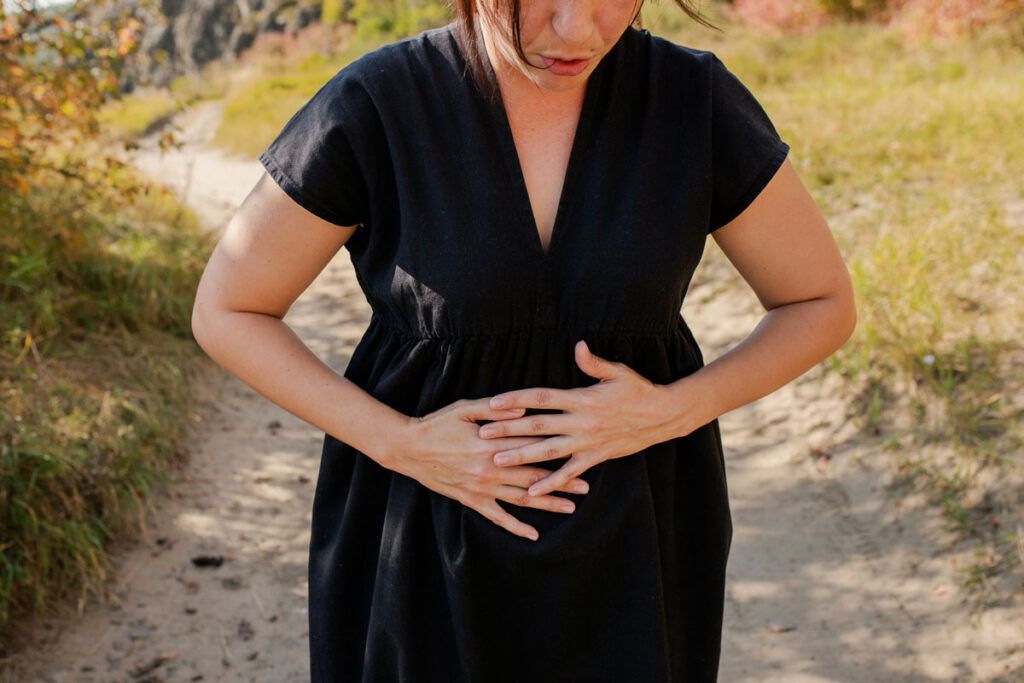Doctors can help you create a treatment plan for managing symptoms of Crohn’s disease. This can include medication, dietary changes, and nutritional support. In some cases, surgery may be necessary.
What symptoms of Crohn’s disease are specific to females?

Many symptoms or effects of Crohn’s disease are specific to females.
Menstruation
Crohn’s disease can affect menstruation in several ways. If you develop Crohn’s disease in childhood or adolescence before beginning your period, it may start later than it otherwise would.
You may also find that menstruation is irregular or stops. This can happen with Crohn’s disease due to:
- inflammation
- stress
- weight loss
- certain medications, such as steroids
You may also find that Crohn’s disease symptoms can change during your menstrual cycle. Crohn’s & Colitis UK advises that, while there is no specific advice on managing symptom changes during your menstrual cycle, it may be helpful to keep a diary of symptoms to see if there are any noticeable patterns.
If you take nonsteroidal anti-inflammatory drugs (NSAIDs) for period pain, you may find that these worsen your symptoms of Crohn’s disease. Your doctor can recommend ways to manage period pain without worsening other symptoms.
You may also wish to contact your doctor to discuss the chances of anemia. A 2020 review suggests that iron deficiency anemia is present in anywhere from 6–74% of adults with IBD and in 41–75% of children under the age of 18 years with IBD. Having heavy periods may increase this chance.
Fertility
A 2021 review of studies indicates that most people with Crohn’s disease will not have lower fertility levels than the rest of the population. But if you are currently having a flare-up or have had particular types of surgery, this might affect your fertility level.
According to Chron’s & Colitis UK, Crohn’s disease may cause inflammation in your fallopian tubes and ovaries in rare instances.
Salpingitis refers to inflammation of the fallopian tubes. In some cases, it may not cause any symptoms. When symptoms do occur, they can include:
- vaginal discharge with an unusual smell or color
- painful periods (dysmenorrhoea)
- spotting in between periods
- discomfort or pain during sex
- frequent urination
- lower back pain
Oophoritis refers to inflammation of the ovaries. Symptoms can be similar to those of salpingitis. Both types of inflammation can cause similar symptoms to IBD, so they may be difficult to detect.
Genitals
Crohn’s disease may cause a fistula to develop between your bowel and your vagina. A fistula is an abnormal connection that can increase the chance of infection or irritation in your genital area.
In rare cases, you may develop vulvar Crohn’s disease. A 2022 study notes that there have been only 200 reported cases.
Vulvar Crohn’s disease can cause symptoms such as:
- ulcers
- nodules
- swelling
- skin tags
Osteoporosis
While anybody can develop osteoporosis, it is up to 4 times more common in females than in males. Crohn’s disease may increase your chance of osteoporosis due to:
- inflammation in the gut
- taking steroids
- low vitamin C levels
- low vitamin D levels
- removal of part of the small bowel
What are some other symptoms of Crohn’s disease?
The most common symptoms of Crohn’s disease include:
- abdominal cramping
- diarrhea
- unexplained weight loss
Other symptoms you may experience include:
- nausea
- loss of appetite
- anemia
- sore or painful joints
- eye pain or redness
- fever
- feeling tired
- skin changes, such as tender bumps under the skin
Certain factors, such as stress or specific foods, may worsen symptoms. Keeping a diary of your symptoms can help you identify these factors.
What are the treatments for Crohn’s disease?
Treatment for Crohn’s disease focuses on managing symptoms. Doctors may recommend a combination of medication, dietary changes, and nutritional support. In cases where symptoms do not respond to other treatments, surgery may be necessary.
Medication
Medications a doctor may recommend for Crohn’s disease include:
- Corticosteroids: These help suppress your immune system and may be suitable for moderate to severely active Crohn’s disease. Examples include prednisone and methylprednisolone.
- Immunomodulators: These suppress your body’s immune response to prevent inflammation. Examples include 6-mercaptopurine, azathioprine, cyclosporine, and tacrolimus.
- Aminosalicylates (5-ASA): Although the Food and Drug Administration (FDA) has not yet approved these specifically for Crohn’s disease, they may help decrease inflammation in the lining of your gastrointestinal (GI) tract. Examples include mesalamine, sulfasalazine, balsalazide, and olsalazine.
- Antibiotics: These can help treat bacterial infections in the GI tract. Examples include ampicillin, ciprofloxacin, and metronidazole.
- Biologics: A doctor may recommend biologics if symptoms do not respond to other treatments. They help stop certain proteins from causing inflammation. Examples include adalimumab, natalizumab, ustekinumab, and vedolizumab.
If you need help covering the cost of medications, the free Optum Perks Discount Card could help you save up to 80% on prescription drugs. Follow the links on drug names for savings on that medication, or search for a specific drug here.
